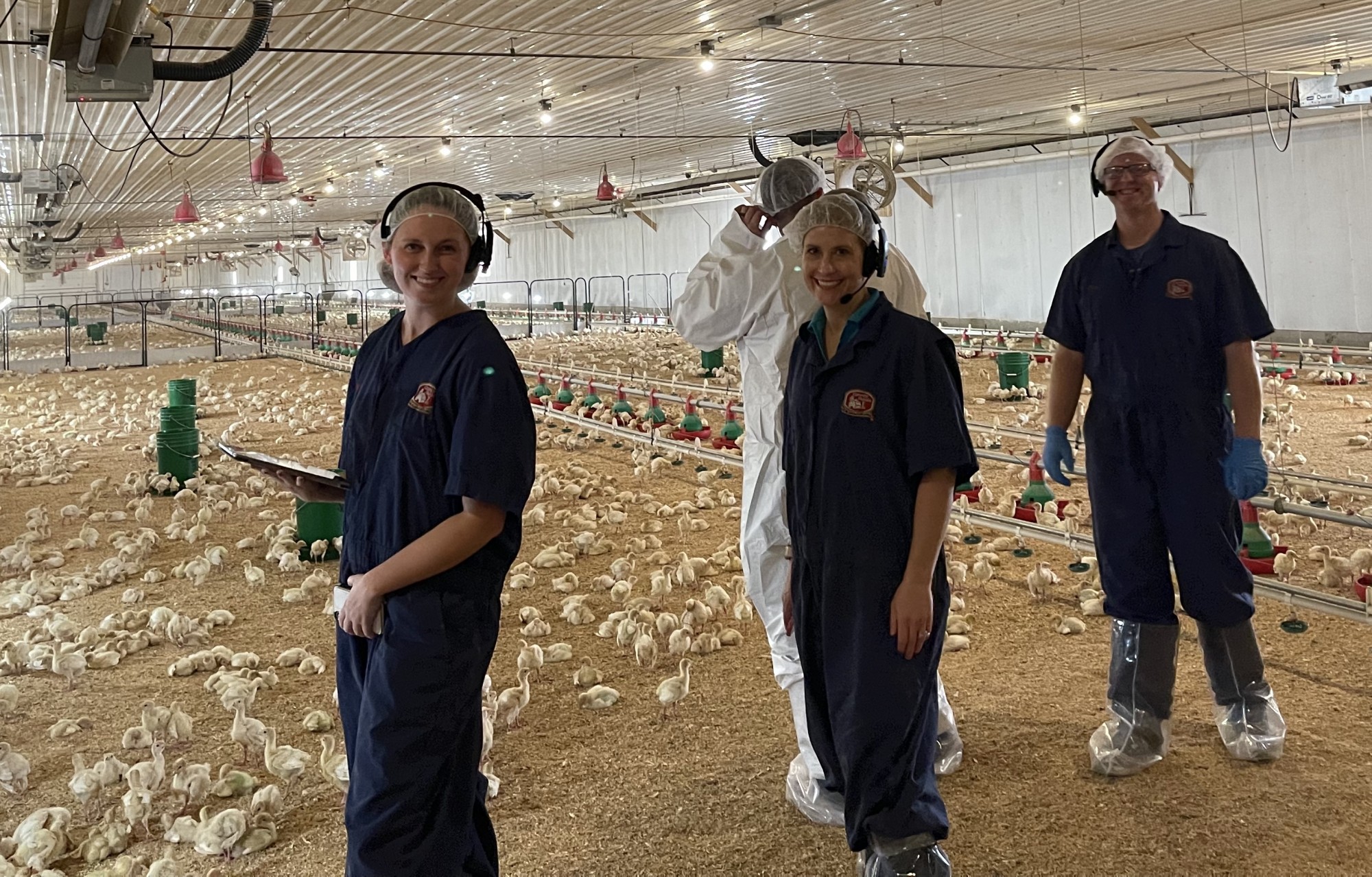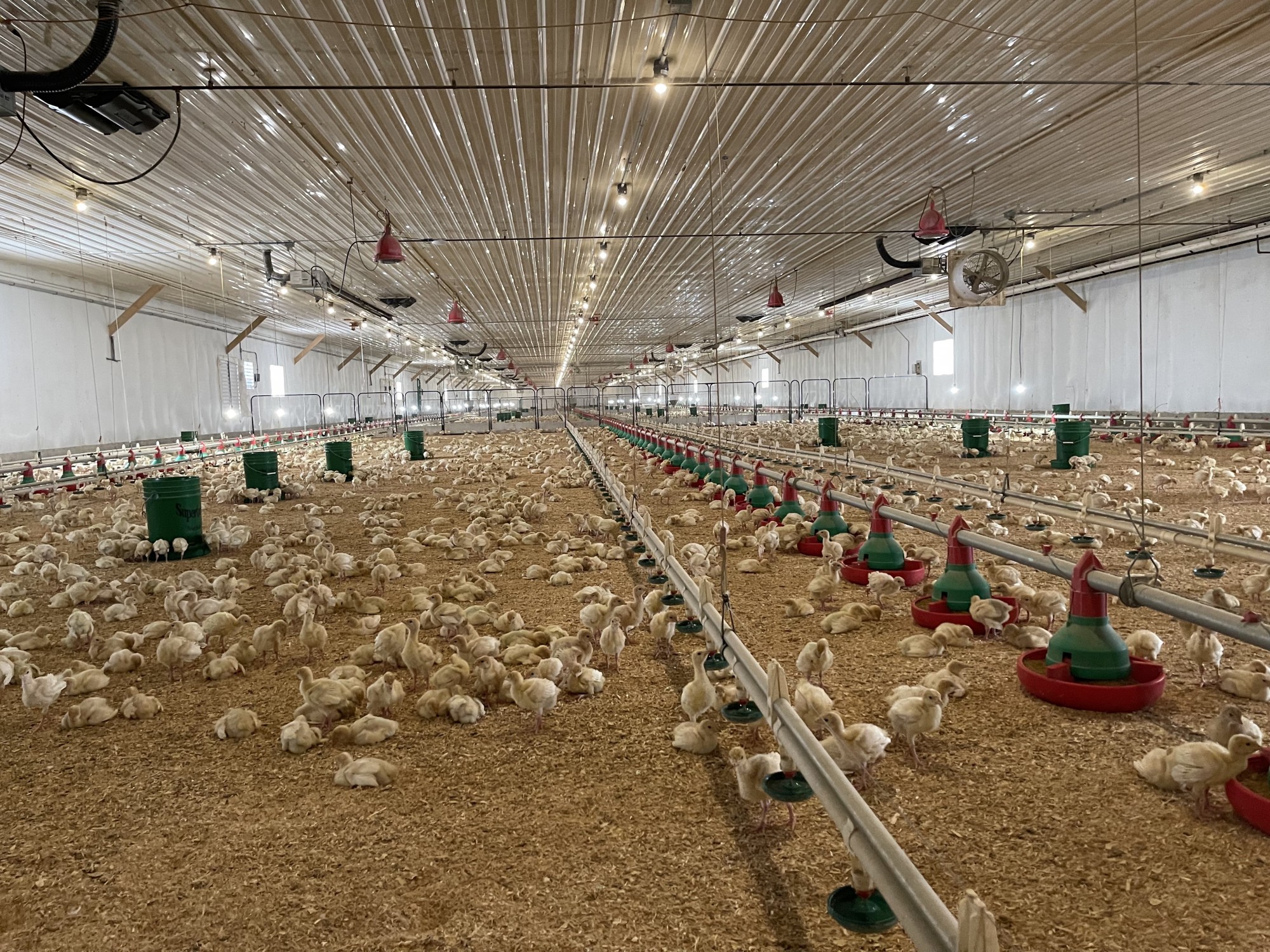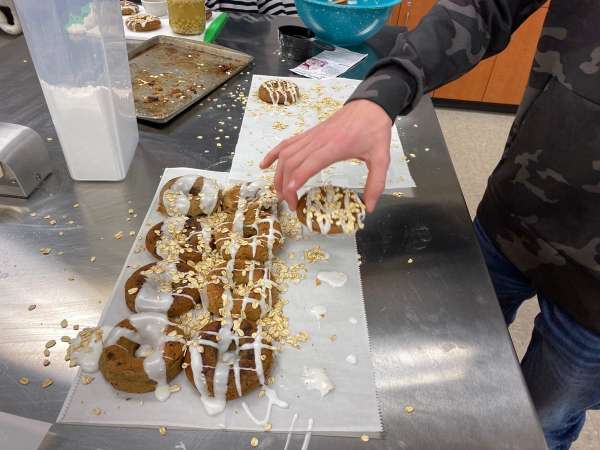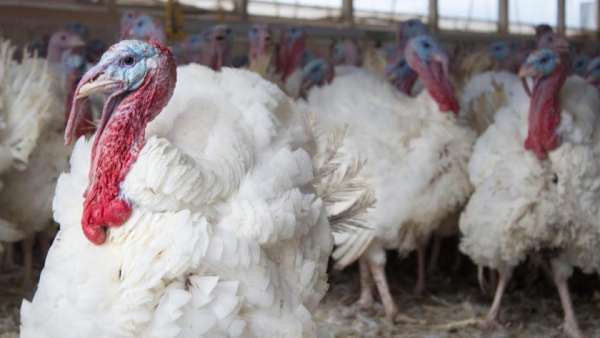We were talking turkeys with this week’s virtual field trip to Cooper Farms, a farm and food company in northwest and west Central Ohio! Ohio Soybean Council presented a visit for teachers and students all over Ohio and in other states, giving them an opportunity to learn more about how turkeys are raised at Cooper Farms.
Ohio is the ninth-largest turkey producer in the United States. Cooper Farms has had the privilege of presenting two turkeys to the White House, one to President Clinton and another to President Obama. The turkeys are ‘pardoned’ and then taken to visit schools so children can learn more about them.
Tom Fontana, Ohio Soybean Council’s Director of Research and Education, and Cooper Farms’ corporate communications manager Cassie Jo Arend welcomed the viewers. Cooper Farms’ service manager Craig Link and GrowNextGen presenter Heather Bryan provided a tour of the turkey barn and gave lots of good information about the care of the birds.

“Why are we wearing these funny-looking suits?” Link demonstrated the safety procedures he uses to enter the barn, including boots, coveralls, and a special foot bath “like hand sanitizer for your feet”, all to prevent bringing diseases or germs into the facility.
Cooper Farms has ten brooder barns where hens lay eggs. The eggs are taken to a hatchery, then put in an incubator for 25 days. After they emerge from the shell, they are taken to the building we saw today.
The barn itself is full of pale yellow poults, or young turkeys, about a week old. Link will care for six or seven flocks in all throughout the year. In this barn, new birds will grow for a few weeks before being moved to the next care area.
In this particular barn, a computer controls all systems, providing the ideal environment for the poults. They have access to as much food and fresh water as they want, and the barn is kept at a special temperature to keep them warm as their feathers grow in. The floor is covered with a three to four inch layer of sawdust bedding, which will be spread on the fields later. The sawdust and turkey manure will enrich the soil and feed crops.
By keeping the birds in a barn, predators can be eliminated, and it is easier to provide them with food and water. Turkeys eat a special diet of corn and soybean meal with vitamins and minerals added in. This provides just the right amount of protein, fat, and carbohydrates, with adjustments as they grow.
It takes 20 weeks for the turkeys to grow up. They will eventually weigh about 45 to 50 pounds. The toms are raised for breast meat used to make products such as deli meat and turkey burgers.
Students were able to ask questions of Link as he shared about his job. They learned that these domesticated turkeys are not able to fly, and they can live to be up to five or six years old. Students also heard about the many jobs related to turkey production and animal agriculture available in Ohio.
Be sure to check the GrowNextGen YouTube channel for lots of other virtual field trips to share with your students!





Share this